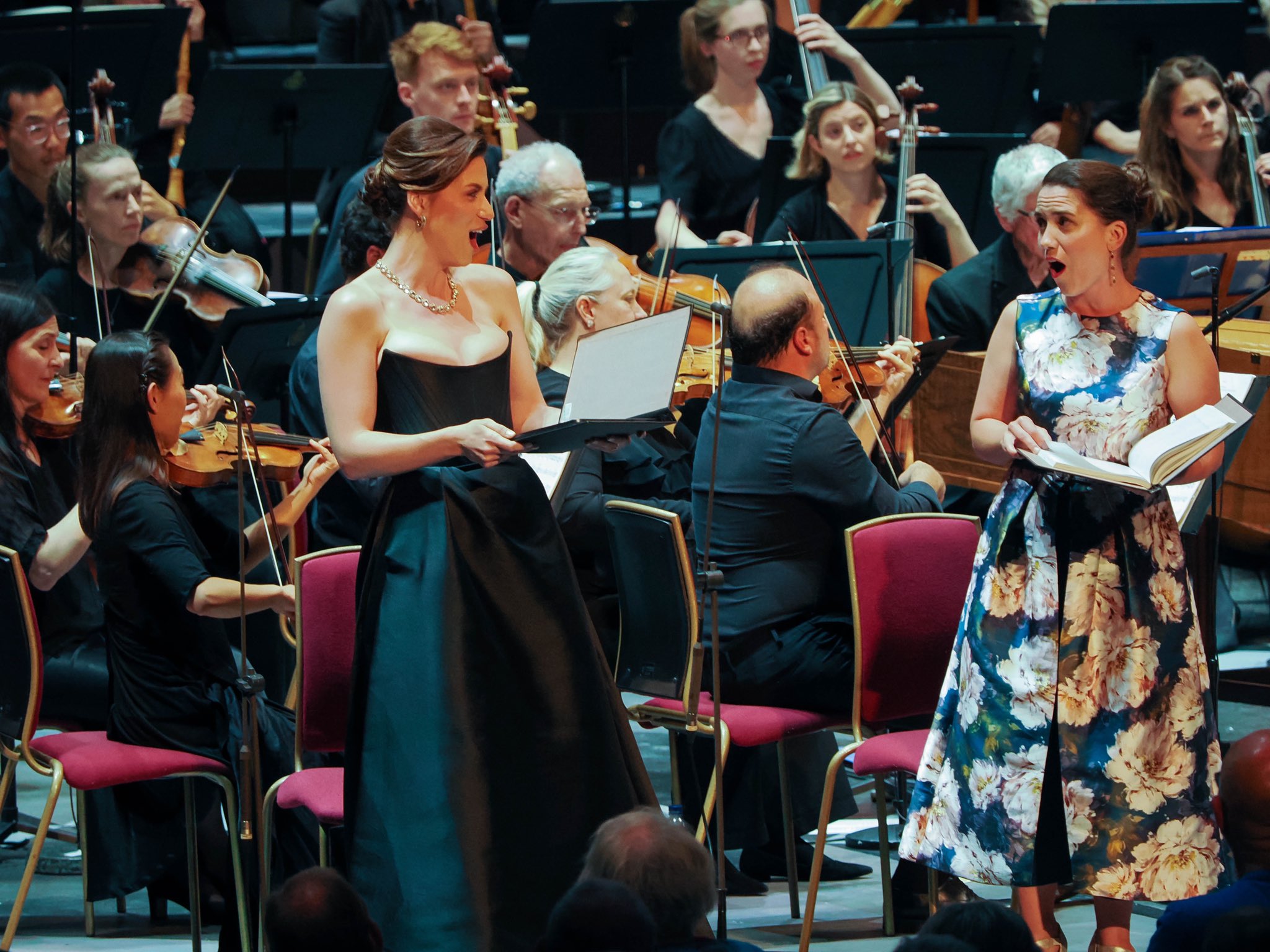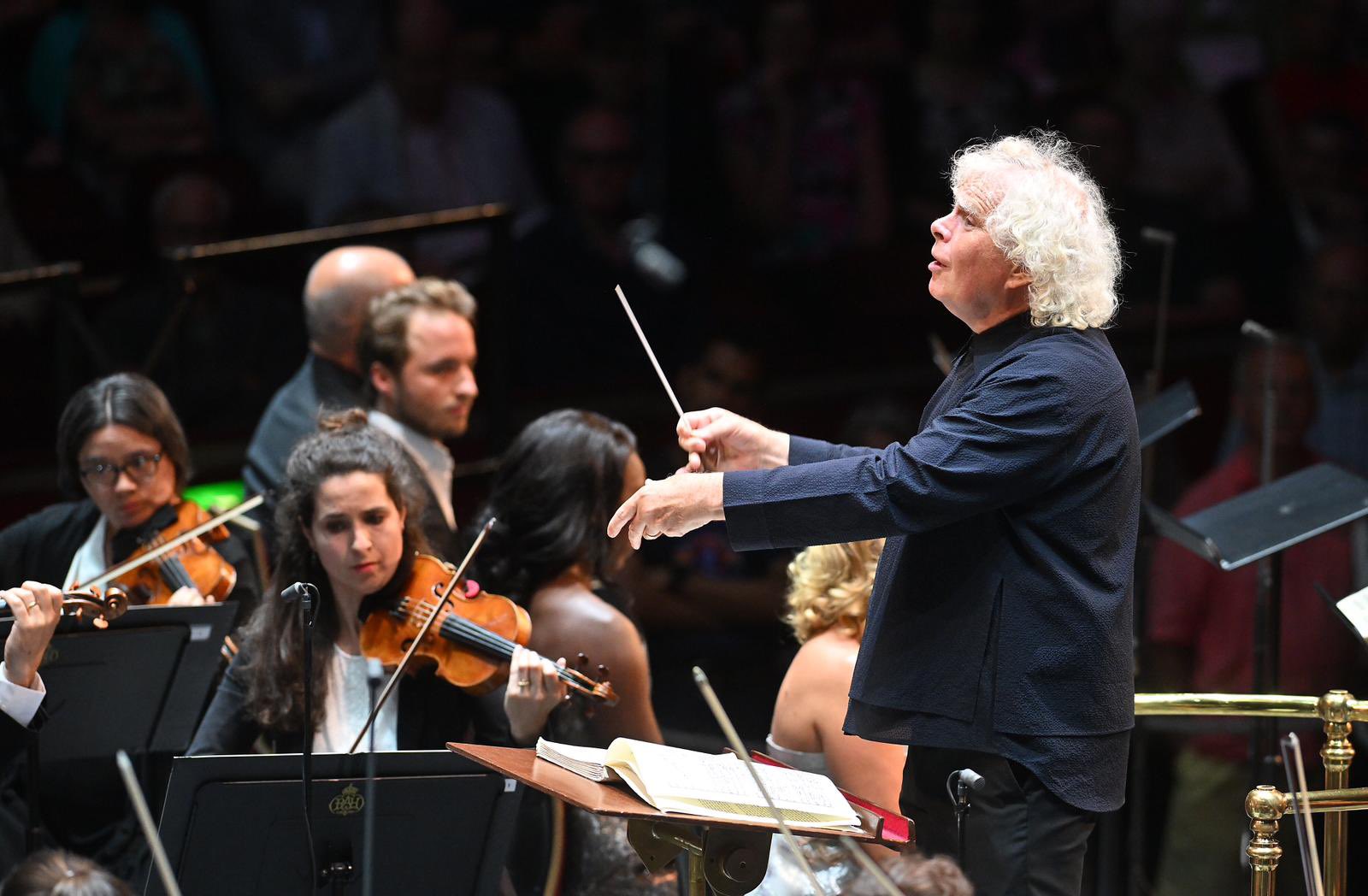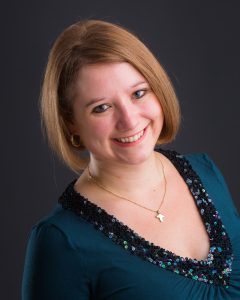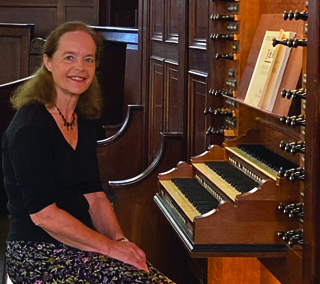
The three composers played in this inspiring concert all had one thing in common: they all suffered tragically early deaths in their thirties. It felt right that the musicians were all youthful too.
The Kaleidoscope Chamber Collective is comparatively young having been formed six years ago by Tom Poster and his wife Elena Urioste, who has already featured as a soloist in this year’s Proms, playing Samuel Coleridge-Taylor’s Violin Concerto in A Minor, Opus 80. The couple are champions of music that is little performed today, bringing back to life many less-known masterpieces. Coleridge-Taylor is a particular passion, Urioste appearing to have picked up the mantle of her US violinist predecessor, Maud Powell, who championed this composer in the States at the turn of the last century. Poster and Urioste are involved in many educational ventures with young musicians, often making up the Collective from their numbers.
Al Ryan from BBC Radio 3 introduced the programme, encouraging applause from the packed auditorium. It was only the second Prom ever to feature in this county and enthusiastic support was evident.
The programme began with the very well-known Piano Quintet in A Major, D667, known popularly as the Trout Quintet by Franz Schubert, written in 1819 when Schubert was in his twenties. With a piece so well-known it is hard to make it stand-out but Poster, both pianist and Artistic Director and his Co-Director Urioste managed that superbly. Usually my experience of chamber music is a consistent awareness of the different instruments as a group of soloists, but with this ensemble such was the empathy and concentration as they listened and adjusted to each other that the sounds of the individual instruments blended superbly, never out-doing one another. This was a triumph of true ensemble work.
Under the two directors’ leadership the quintet, Tom Poster on piano, Elena Urioste, violin, Rosalind Ventris, viola, Tony Rymer, cello and Joseph Conyers on double bass, was instilled with passion and drama which jolted us into experiencing it with fresh ears. Mainly this was achieved by dramatic mini-pauses in the flow which heightened suspense but also with contrasts in volume from soft to loud [though not too fiercely loud] and contrasts in tempo. There was a delicacy of touch throughout so that never did we feel that the ensemble had lost touch with the joyful summery mood of the whole, nor had it used their contrasts as experiments just for the sake of it. This was a genuinely thoughtful and extremely disciplined rendition of a great public favourite which used their vision to help us discover it anew. Particularly memorable was the Variations on Schubert’s own song, ‘Die Forelle’, ‘The Trout’. I found myself seeing that fish swimming down a rippling brook, chasing through light and shade as with a playful flick of a fin it enjoys itself, hugging the shadow when threatened, glorying in the dappled sunshine when feeling safe and, ultimately, sadly, caught. The storyline, if it is that, has never struck me so visually before.
After the interval we were treated to Samuel Coleridge-Taylor’s Nonet in F Minor, Opus 2, written at the age of 18 while he was studying at the Royal College of Music. Poster, in his introduction to the work, describes Coleridge-Taylor’s enthusiastic youthfulness displaying itself through ‘every trick in the book’. Just as a piano quintet was quite an unusual combination in Schubert’s time, a nonet is even more unusual, especially including the range of instruments he does: added to the piano and four stringed instruments we saw before the interval, we now have oboe, Armand Djikoloum; clarinet, Cristina Mateo; Bassoon, Guylaine Eckersley and French horn, Ben Goldscheider.
In this piece the piano and strings provide a solid background, against which the composer adds a colouring of woodwind and brass. He has fun with pairing instruments that would not usually be heard together. Particularly lovely was the bassoon paired with the horn, but oboe and clarinet together or oboe and horn were also fun. In fact every possible combination was used at one time or another! Sometimes, too, the instruments ‘talked’ to each other, like question and answer. Every one of these players were tested, as if the composer wanted to see what possibilities of tone and quality each one possessed.
Different styles emerge at times. There are echoes of Brahms and Dvorak, but also short jazzy sections which reference the rhythms and the negro spirituals Coleridge-Taylor was passionate about. My favourite movements were the last two – of four. The third movement was a frenetic scherzo with a modernistic sound backed by a tandem of staccato notes on the cello and double bass. This gave way to a mellower sound led by clarinet and horn. The last movement tested each instrument to the fullest, dizzily leading into a helter-skelter of an ending, with a playful ‘hiccup’ of a last note.
The concert’s finale was an adaptation of four of Gershwin’s songs, for the same nine instruments: Love Walked In, The Man I Love, A Foggy Day and They Can’t Take That Away from Me, all as it happens personal favourites of mine. Tom Poster’s arrangements [apparently done during lockdown] were wonderful, managing somehow to sing without the use of an actual human voice. Some of the audience were moved to tears and all were carried along with the mellow mood. A blissful end, thank you.
An ecstatic and lengthy applause from the audience brought the players back again for an encore: another song arrangement, this time of Jerome Kern’s Look for the Silver Lining.
Jeni Whittaker





 Making a return visit after her well-received previous concert Francesca Massey brought an interesting programme and fine performances throughout the evening.
Making a return visit after her well-received previous concert Francesca Massey brought an interesting programme and fine performances throughout the evening. WS Gilbert died in 1911 and Agatha Christie was born in 1890. So they could, in theory, have met. I doubt that they did – that is until Charles Court Opera Company introduced them to each other in this ingenious, enjoyable show.
WS Gilbert died in 1911 and Agatha Christie was born in 1890. So they could, in theory, have met. I doubt that they did – that is until Charles Court Opera Company introduced them to each other in this ingenious, enjoyable show. This series continues to draw some big names in the British organ world. Margaret Philips is certainly one of those. A prolific performer and recording artist as well as educator and campaigner, Margaret’s return to Hastings (after 20 years) was greatly anticipated and much appreciated by all present.
This series continues to draw some big names in the British organ world. Margaret Philips is certainly one of those. A prolific performer and recording artist as well as educator and campaigner, Margaret’s return to Hastings (after 20 years) was greatly anticipated and much appreciated by all present.